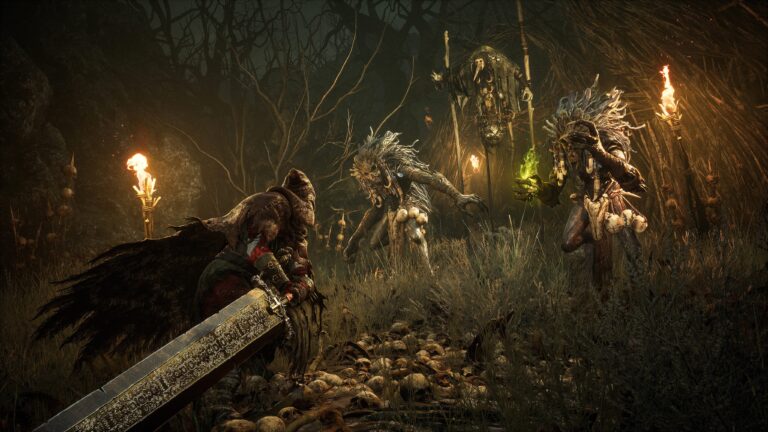Detroit: Become Human is Challenging
[Editor’s note: The opinions in this article are my own and do not necessarily reflect those of Gaming Instincts.]
The Controversy:
Detroit: Become Human is receiving some unfairly negative publicity after its gameplay trailer, featured at Paris Games Week, was viewed by The wonderful professionals who dedicate their lives to keeping children safe.
But the world is not what I imagined. It is dark and cold. It is harsh and violent, unfair and brutal.
–Kara
However, their uproar over the trailer is hyperbolic, to say the least. In some cases I wonder if the critics fully understand the premise of the game, or if they’ve even watched the trailer that so fervently offends them. Perhaps they have misunderstood the game’s perspective. Maybe they are under the impression that not addressing a difficult subject is the best strategy to eliminate the issue, or that they are the only people qualified to discuss child abuse.
Justification:
As reported by The Mail on Sunday, several children’s campaigners have strong opinions on Detroit: Become Human and how the game has approached the aforementioned topic.
Perverseness and Proliferation
“Abusers will get off on this stuff and the other thing we know beyond question is that videos [sic] games end up being played by children and, scarily, the proliferation of salacious and abusive images is actually encouraging violence and abuse. And we know that abuse in all its forms is escalating on this planet so why not help to tackle it constructively rather than sensationalise and make money out if it?” founder of the National Association of People Abused in Childhood, Peter Saunders, said.
While the things that perverts “get off on” is completely out of anyone’s control, the ESRB is in place to prevent games with mature content, Like Detroit: Become Human, from getting into the hands of children. And studies have shown that there is no definitive link between violent games and violent behavior. There are only opinions and unsupported intuition.
Profit
Children’s Commissioner for England, Anne Longfield, said, “It seems to end up in a clumsy, inappropriate and graphic gameplay that is no more than an unpleasant exploitative way of making money off the back of real suffering.”
Yes. Domestic violence is graphic. It is unpleasant. That’s why people feel so vehemently when it comes to instances of abuse. It isn’t fair. The monsters who abuse those who are weaker than themselves enrage the vastly sympathetic population. We band together to raise awareness, to try and better the current circumstance.
Furthermore, Detroit: Become Human is not about exploiting domestic abuse for profit. It’s about exploring the human experience—a “what-would-you-do?” simulator for those who have never been in difficult situations like these. Yes, it is challenging to hear a child cry out in pain and endanger yourself to stop it. And yes, Quantic Dream is going to make money on this game that explores these human experiences. That doesn’t mean the developer isn’t doing good, isn’t raising awareness. Though, after the game is published, it would be nice to see the company donate a portion of the profits to Detroit’s CPS.
Planting a Seed
Tory MP Damian Collins, Chairman of the Culture, Media and Sport Select Committee presented the best argument against the game. “It’s dangerous to plant the seed in people’s minds that the way to deal with abusers is to use violence against them. It’s counterproductive and could put them in even more danger.”
He’s referring to one of the possible conclusions to Kara and Alice’s story from the trailer, in which Alice (the abuser’s daughter) shoots her father. And with this I agree. Answering violence with violence is dangerous, especially when you’re the weaker of the two. But this raises a litany of hypothetical questions. How many times must someone submit to abuse until they feel they have nothing to lose? The trailer was very clear that Kara had been sent away for repairs because of a previous altercation with the father, presumably defending the girl.
Respect and Empathy
Deep inside me, I could feel something different. A gentle and warm whisper telling me that I am alive. I had to escape. Escape to love, to hope, to figure out what that force inside me was. Maybe I’ll change the world.
–Kara
Game designer David Cage, defended Detroit: Become Human and the controversial scene. “There are things I’d never do. I’d never do a racist game, or a misogynist game. These are the limits,” he said. “When you feel okay with the content and the meaning when you know you have nothing to be ashamed of because it’s fair and it tells the right story and because it’s moving. There are no limits.” It seems like we need to have faith in the designer to treat the subject matter with respect and empathy.
These are difficult topics, but not anything new to the entertainment industry.
Other Culprits:
There is one obvious example of celebrated domestic violence in entertainment. A film so powerful, so moving that Mo’Nique, who played an abusive mother, won the Oscar, the Golden Globe, the BAFTA, the Screen Actors Guild Award, the African-American Film Critics Association award, the Alliance of Women Film Journalists award and 20+ other awards for best supporting actor. And this film featured scenes that are much, much more uncomfortable to watch than the Detroit: Become Human trailer.
The film is 2009’s Precious was adapted from the novel Push, by Sapphire. The novel won 26 awards of its own.
What we’re looking at is a critical audience that dismisses video games as a legitimate media platform. Apparently, some forms of writing are objectively more elevated than others. And directors and producers who work with film, rather than animation and motion capture, are more capable of handling sensitive materials.
Predictions:
So if I haven’t rattled a few chains, or overstepped my bounds, it’s probably because you, the reader, agree with the fact that video games deserve the same respect that other forms of media have received for decades (or even, in the case of books, centuries). But I know how to push those reader’s buttons, too.
Not only will Detroit: Become Human be developed to completion and be commercially successful, but it will be nominated for, and win, the 2018 Golden Joystick for Games for Impact award. Gamers have already seen trailers that tackle questions of consciousness, suicide and now domestic violence in Detroit: Become Human. It is looking to be a strong contender.
Last year’s winner, That Dragon Cancer, had “occasionally clunky interactive elements [that] hinder rather than amplify its message,” (IGN). And so it goes with the video game industry. Even if Become Human turns out a little clumsy and graphic, we shouldn’t let it detract from the game’s message. And we certainly shouldn’t censor Quantic Dream before it has a chance to share that message.
No related posts.








[…] more information on Detroit: Become Human, visit its official […]
This is sad, every single time a game rubs the “oh so good” people of the world the wrong way, it’s threatened to be censored. Why must it be censored? Because it touches real world issues and video games aren’t allowed to do that? Why must they keep censoring games when equally themed movies and books are present all around the globe, yet no one bothers with them? I feel like a lot of critics really just look at video games as the media of all the things wrong with the world, such as why kids are becoming more violent,… Read more »
Couldn’t agree more. I’ve had many lengthy conversations with my gf about the legitimacy of games as media and art. games are capable of reaching people in the same way as movies, books, music, painting and theater. But not everyone follows all of these forms of art. So long as the game is done in a respectful manner, these complaints should be considered nothing more than the bemoaning of pretentious, narrow-minded people.